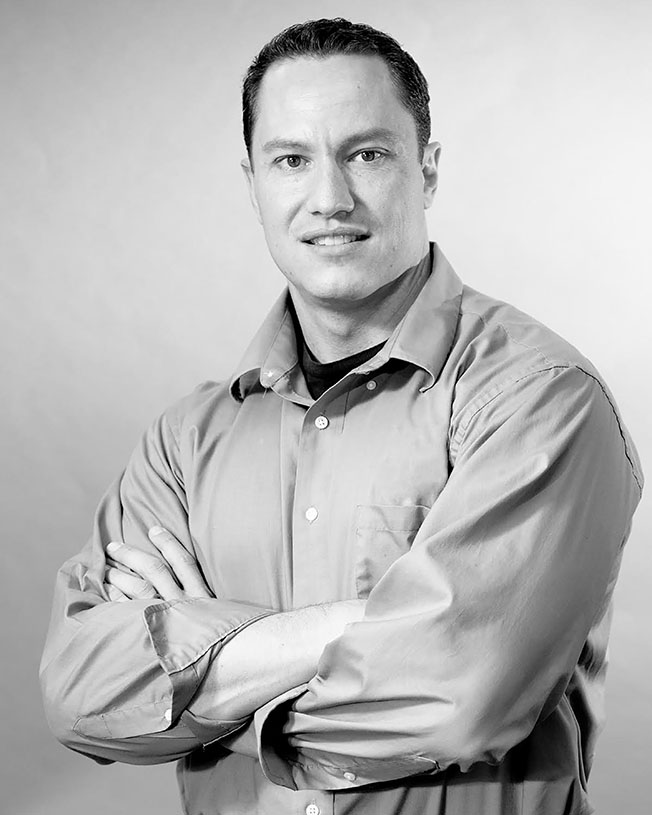
One of the most powerful rags-to-riches stories is that of Skyler Ditchfield, a multi-millionaire entrepreneur, who had a troubled childhood in rural Ojai, California. He grew up in a broken home and was bullied and beaten up at school but managed to rise above his difficult circumstances to become mega-successful.
Even though Ditchfield ended up giving up on school, he still landed his first job in Silicon Valley. He took his first real corporate job as a Network Engineer II at the Private Network Management Center (PNMC) of MCI Worldcom in Silicon Valley where he serviced high-level clients such as JP Morgan, Goldman Sachs, Quotron, Reuters, and more. Although he was the youngest technician in the office, he was quickly promoted to Network Engineer III because of his outstanding performance. However, when the company relocated to the East Coast, he was one of two employees that were offered a transfer. He declined the offer, and instead, he decided to return back to his hometown in Ojai, California.
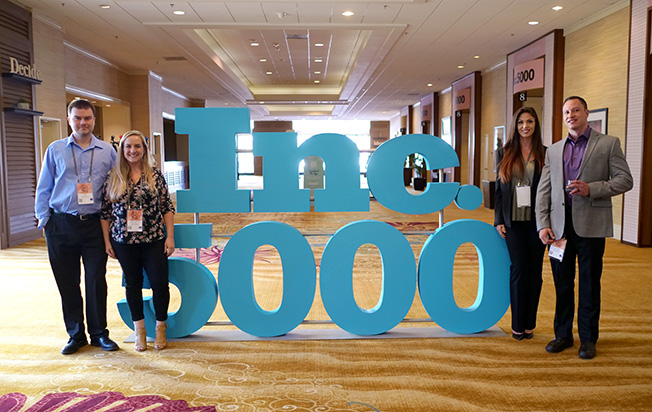
Over the next few years, he experienced multiple business failures that left him facing massive debt and ruined credit. He even tried to open up a local nightclub which didn’t pan out, and he also became homeless for a time. On top of that, his life-long battle with Chrome’s disease took a severe turn for the worse, placing him in multiple month-long stays in the hospital. His disease got so bad, that the doctors said he only had a few more years to live. Determined to outlive their predictions, he found an experimental course of treatment on the Internet which miraculously worked. Then came what Ditchfield calls his restart button – he found out he was going to be a father. With renewed health and an unexpected daughter on the way, he found a new sense of motivation for life. He regained his health and aggressively got back in the I.T. space allowing him to climb out of debt.
Fast forward to a few successful startups later, he ended up discovering GeoLinks with his cousin Ryan Hauf. Skyler bootstrapped what began as a 2-person business out of his weight room in 2011 to what is now a 9-figure (and growing) business. GeoLinks became the fastest growing fixed wireless ISP in the country and Inc. Magazine’s 2017 Inc. 5000 NO. 5 Fastest Growing Telecommunications Company in America. Under his leadership, Ditchfield has led the company to record more than 100% growth for six years straight and is on track for a seventh. Some of his recent accolades include World’s Top 5 Best Businessmen of 2017, Entrepreneur of the Year 2018, and Top 100 Innovator in Diversity and Inclusion.
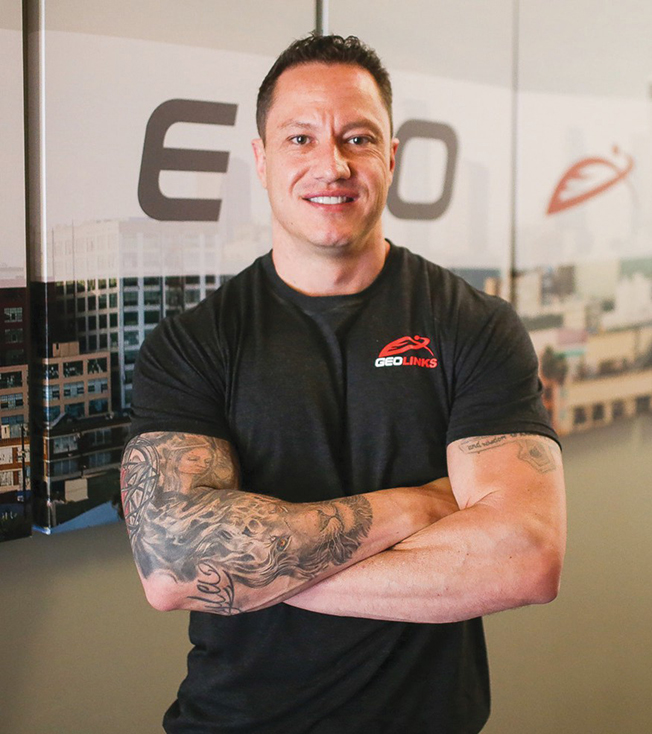
StarCentral Magazine recently sat down with Skyler Ditchfield to find out more about her journey to entrepreneurship and here’s what went down.
Can you describe your journey to success? When did you start? Did you ever imagine you would become this successful?
I don’t consider myself successful yet, however, I feel I have traction and am on the right path. While I appreciate the recognition, success, in my eyes, would be to permanently change the lives of all my staff and others for the better. My journey was described earlier; it’s been long, grueling, and hard. I’ve calculated that I’ve put in about 20 years of normal work hours in the last seven years alone at GeoLinks. I’ve always imagined the path to success would come sooner, and I find it frustrating not being able to achieve growth even faster than we already are.
What is your main source of income?
My main source of income is the salary I earn from GeoLinks.
What are you currently doing to maintain/grow your business?
I look at new opportunities every single day. Currently, I am evaluating expanding our network into additional states, further diversifying our product line, and exploring more government project opportunities.
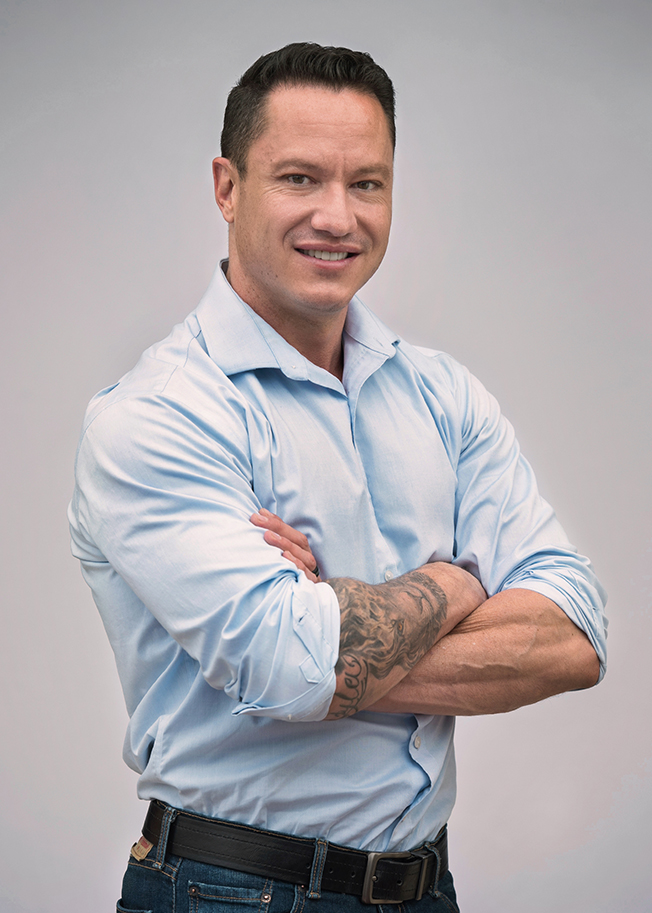
What is the toughest decision you had to make in the last few months?
I face tough decisions every day. The most difficult decisions for me end up being when I have to walk away from exciting and big opportunities simply because I know (from experience) it would stretch our team too thin, or we lack the resources.
What money mistakes have you made along the way that others can learn from (or something you’d do differently)?
I’ll say this—learn your accounting and always double check your books. Even if you trust someone else to do it, still learn and keep an eye on what’s going on, because if you don’t keep track of your cash, you’ll be out of business.
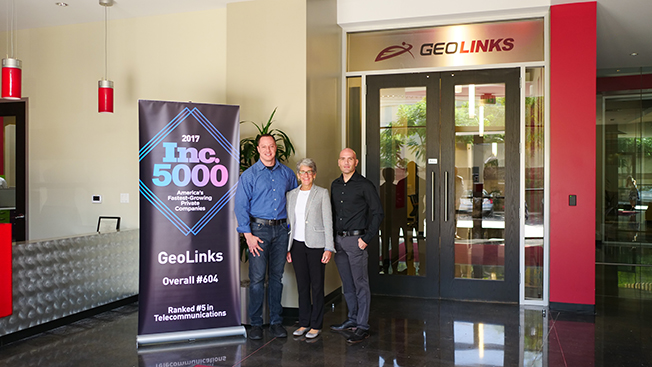
What have you learned in the process of becoming wealthy that others can learn from?
I am not wealthy in my own eyes… However, as perceived success grows, more and more people will mislead you, misrepresent themselves to you, and pretend to be your friend.
What new business would you love to start?
A health and nutritional products business—outside of GeoLinks and my family, health, and fitness have been lifelong passions of mine.
If you could go back in a time machine to the time when you were just getting started, what would you do differently?
Be ready. Be ready for more challenges and perceived failures than you can possibly imagine. Realize and prepare yourself for the fact that the problems that lie ahead will ultimately become opportunities, and never fool yourself into believing that the road ahead will be easy. Master that mindset now, and you’ll be primed for pushing through all of life’s roadblocks.
If you could go back in a time machine to the time when you were first making a name for yourself, what advice would you give yourself?
Just start. Don’t procrastinate or worry about putting yourself out there.
Once you’ve had the courage to start, have the confidence to know that results will come.
 z
z
Do you have any favorite business-related or personal development related books that you can recommend to other entrepreneurs?
Think and Grow Rich by Napoleon Hill and No Man’s Land: Where Growing Companies Fail by Doug Tatum.
What is the best advice you have ever been given?
Cash is king, know your accounting!
What advice would you give to a newbie Entrepreneur setting up their first business?
If you can’t sell your own product, don’t start the business. Furthermore, there is definitely such thing as growing too fast. It’s easy to get wrapped up in accelerated success, and thus make misguided business decisions on projections rather than facts. It’s okay to dream big, but remember, in order to have a business or achieve a mission, you must remain in business. Another element that can be lost in quick growth is culture. In today’s modern workplace, culture is paramount in attracting and retaining top talent. Thus, it’s imperative to never forget that you’re only as great as the team you’re surrounded by. Finally, one word of advice I give to all Entrepreneurs who are starting out is to follow your gut and fire fast. Every single time I have ignored my gut or procrastinated on a “debatable” employee, it has yielded negative results. The world is full of opinions, master the art of creating your own and trusting your intuition.








